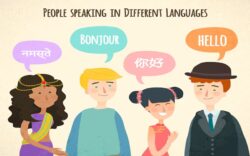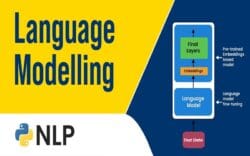Link: https://tecfa.unige.ch/cmn25/
When May 28, 2025 – May 30, 2025
Where Geneva
Submission Deadline Jan 15, 2025
Notification Due Mar 3, 2025
Final Version Due Mar 24, 2025
Categories artificial intelligence narrative NLP digital storytelling
Call For Papers
8th International Workshop on Computational Models of Narrative (CMN’25)
Advancing the Science of Narrative
—IMPORTANT DATES—
January 15, 2025. Submission deadline.
March 3, 2025. Notification of acceptance.
March 24, 2025. Final Versions Due.
May 28- May 30, 2025. Workshop in Geneva, Switzerland.
—WORKSHOP AIMS—
The Computational Models of Narrative (CMN) workshop series is dedicated to advancing the computationally-grounded scientific study of narrative, a crucial aspect of human experience used for communication, persuasion, explanation, and entertainment. Narrative, or storytelling, is a symbolic activity that imitates human actions through emplotment, representing discordant events through concordance. From myths to histories, narratives are ubiquitous across time, making understanding narrative intelligence essential to comprehending human intelligence. Narrative studies, aka narratology, has its root in Aristotle’s Poetics, thriving in the wake of the French New Rhetoric, where Todorov first coined “narratology” in 1969 to theorize narrative grammar based on structuralist linguistics. Despite criticism for its formalism and reduction, this characteristic enables the intersection of computer science and poetics, providing various structures for computational modeling.
Computer scientists have long tapped into the three-act structure, Freitag’s pyramid, Propp’s morphology, and Campbell’s or Vogler’s hero’s journey. Large Language Models (LLMs) boast their breakthrough in generating narratives, betraying traces of the structures mentioned above. Systems for narrative analysis and production are increasingly embedded in devices and processes, influencing decision-making in venues as diverse as politics, economics, intelligence, and cultural production. In order to appreciate this influence, it is becoming increasingly clear that research must address the technical implementation of narrative systems, the theoretical bases of these frameworks, and our general understanding of narrative at multiple levels, from the philosophical and cognitive impact of narratives to our ability to model narrative responses computationally.
We invite and encourage submissions either as full papers or position papers, through the workshop’s website:
https://tecfa.unige.ch/cmn25/
Full papers should contain original research and be between 8 and 16 pages; position papers can report on work-in-progress, research plans or projects and have to fit within eight pages. Accepted papers will be published in open access (Gold Road), free of charge.
—ILLUSTRATIVE TOPICS AND QUESTIONS—
- What are appropriate formal or computational representations for narrative?
- How is narrative knowledge captured and represented?
- Is narrative structure universal, or are there systematic differences in narratives from different cultures?
- What makes narrative different from a list of events or facts?
- What comprises the set of possible narrative arcs? Is there such a set?
- How do conceptions and models of spatiality or temporality influence narrative and cognitive systems?
- What are the details of the relationship between narrative and language, image, or sound?
- How are narratives affected by the media used to convey them?
- How far are we from a model of narrative adaptation across media?
- How can we study narrative from a cognitive point of view?
- Can narrative be subsumed by current models of higher-level cognition, or does it require new approaches?
- How do narratives mediate our cognitive experiences, or affect our cognitive abilities?
- How can narrative systems be applied to problem-solving?
- What are the details of the relationship between narrative and common sense?
- How should we evaluate computational and formal models of narrative?
- What shared resources are required for the computational study of narrative? What should a “Story Bank” contain?
- How are narratives indexed and retrieved? Is there a universal scheme for encoding episodic information?
- What shared resources and tools are available, or how can already-existent resources be adapted to the study of narrative?
—ORGANIZING COMMITTEE—
- Fanfan Chen (National Taipei University of Business, Taiwan)
- Antonio Lieto (University of Salerno, Italy)
- Rémi Ronfard (Inria, LJK, University of Grenoble, France)
- Nicolas Szilas (University of Geneva, Switzerland)
















+ There are no comments
Add yours